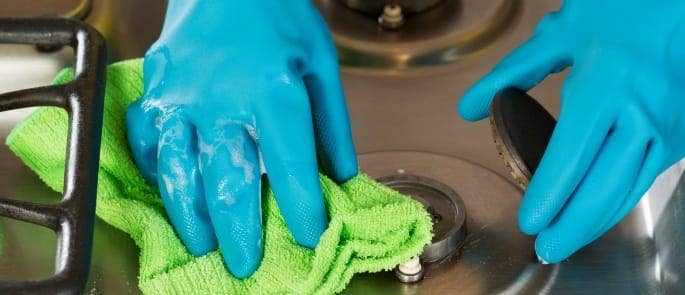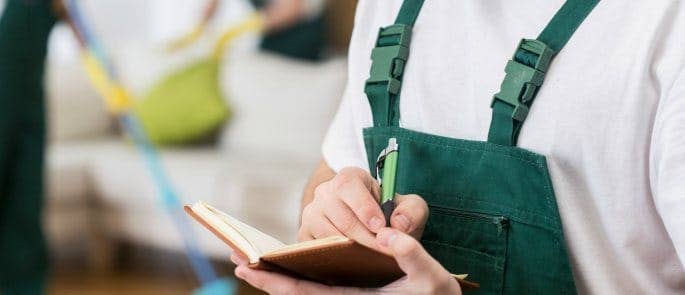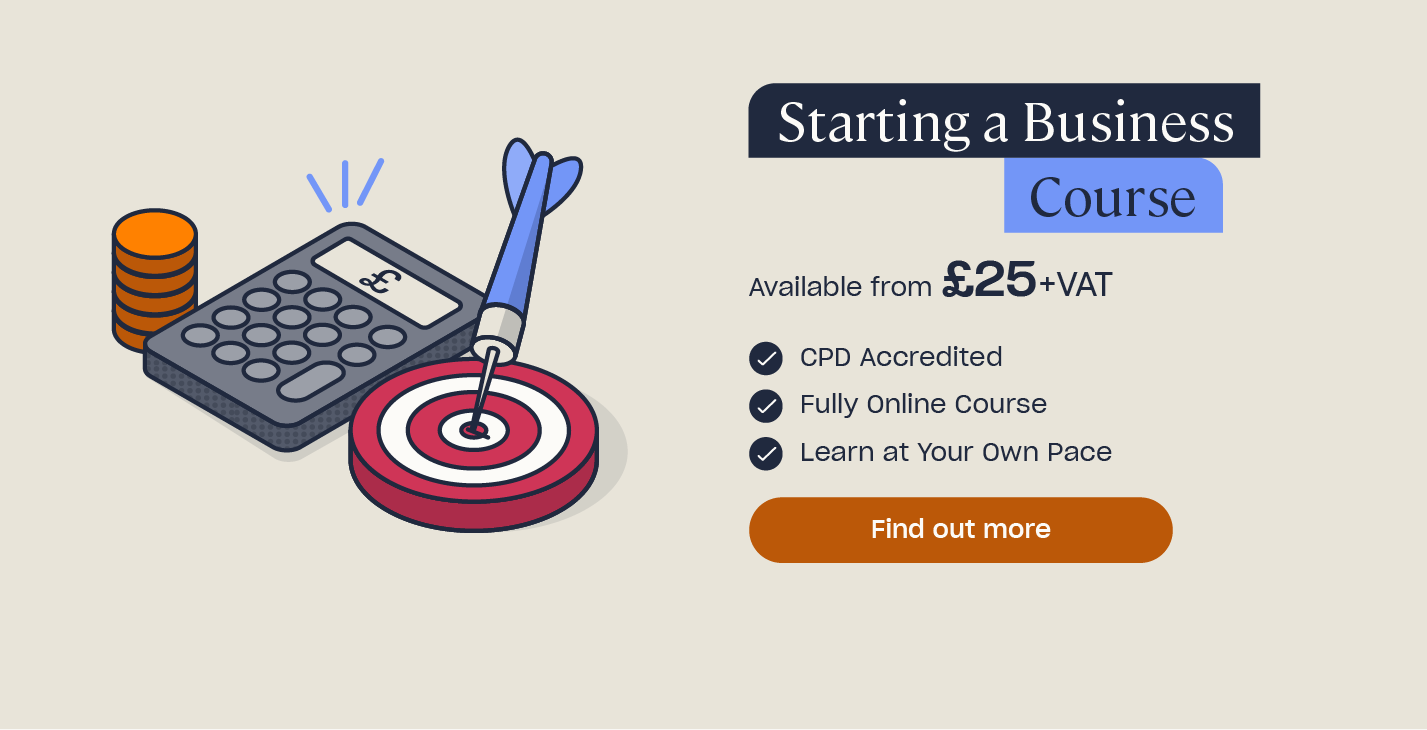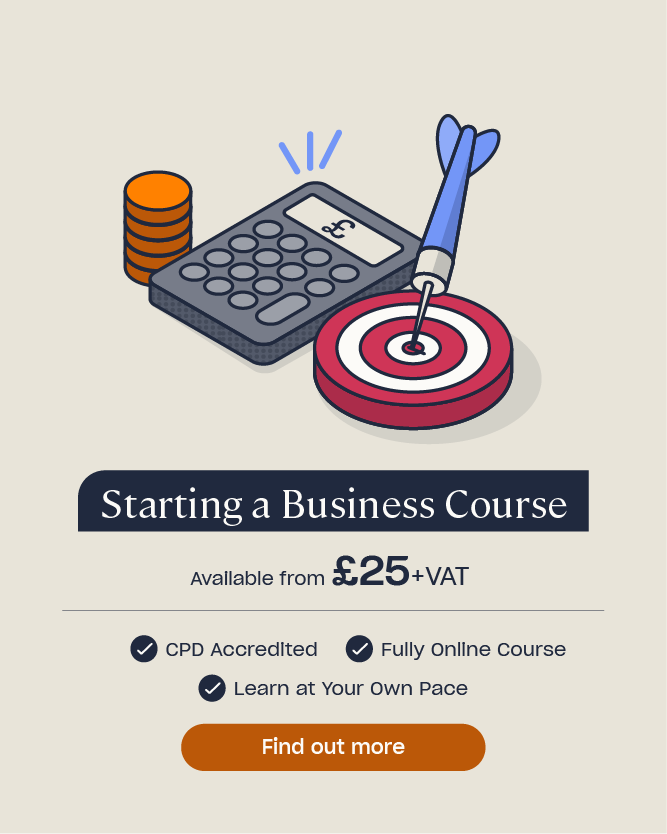Chapter 3: What Equipment & Resources Do I Need to Start My Cleaning Business?
List of Basic Cleaning Supplies
Now that you’ve done your market research and determined the type of cleaning business you want to start, it’s time to get shopping for the basics! Not every cleaning company will require the same products as it depends on what exactly you’ll be cleaning but a few ideas to get you started include:
- Sponges and scourers.
- Yellow dusters/microfibre cloths.
- Glass polishing cloths.
- Cleaning brushes.
- A mop and bucket.
- A dustpan and brush.
- Protective gloves.
- A plastic caddy to carry the essentials.
Of course this is just a basic list and is best suited towards a domestic cleaning business. If you have chosen to operate a commercial or specialised cleaning business then you may also need specialist equipment such as vacuums, pressure washers or hoses.
Bigger companies, or those that are required to travel between locations, will also need to consider their transport arrangements. You could think about using your own car or you could hire or purchase a company van to get from place to place. Don’t forget that this will be an extra outgoing cost for your business.
And where would a cleaning company be without their cleaning products? If you’re a domestic or commercial cleaner first you need to determine:
- Are you bringing your own cleaning products to a job?
- Will the client be providing you with their own products to use?
Some clients will prefer to provide their own cleaning chemicals if they have particular preferences or if they’re allergic to certain ingredients. Always find out in advance of the job whether this is the case. It’s a good idea to have a supply of basics to hand regardless though just in case what you’re using runs out or if there’s been an oversight and the client isn’t actually supplying their own.
15 Essential Cleaning Products
Here’s our list of 15 essential cleaning products which you may wish to invest in:
- Furniture polish.
- Glass cleaner.
- Multipurpose cleaner.
- Disinfectant.
- Mildew cleaner.
- De –scaler.
- Degreaser.
- Floor cleaner.
- Bleach.
- Sanitiser.
- Toilet cleaner.
- Washing up liquid.
- Oven cleaner.
- Laundry detergent.
- Dishwasher chemicals.

Warning: All of these chemicals are classified as hazardous substances and must be handled, used and stored with care. If you’re using these then you should also wear protective equipment, like a pair of cleaning gloves.
To learn more about hazardous substances, have a read of our COSHH – A Guide to Employers’ and Employees’ Responsibilities article. You can also find our COSHH Training for Cleaners, here.
What Are a Cleaning Company’s Start-Up Costs?
A domestic cleaning business can be started for very little money, especially if you’re the only person working and you don’t have any other employees. This means that your only start-up costs will be those demonstrated in the basic cleaning supplies section – unless your clients are providing their own products and equipment in which case your costs will be even fewer!
You can save more money on buying the essentials by buying in bulk online, from wholesalers or at the supermarket. It’s often cheaper to buy direct from the manufacturers too so be sure to check their websites and mail order catalogues.
To obtain a basic range of cleaning equipment and chemicals, expect your start-up cost to be around £150.
Of course this will vary depending on what you do and don’t need and it doesn’t take into account extras such as transport, a company uniform or an advertising budget.
If you provide your own cleaning products you may find that you can actually charge slightly more for your services so don’t feel too disheartened by your initial spend – it’s likely that you’ll recuperate the costs fairly quickly once business gets going.
If you own a more specialist cleaning company then the start-up costs can be much more substantial, especially if you have to invest in specialist cleaning equipment. In these cases always shop around to find the best deal.
Hiring Staff
In your initial start-up days you may choose to go it alone and run your cleaning business on your own, either to keep costs down or because you’re waiting for your business to take off before hiring your first employees. On the other hand, perhaps you’re starting up your company with a friend, family member or colleague, or maybe you’ve already promised a job to your daughter, nephew or neighbour.
No matter the circumstances, chances are there’ll be a time when you want to hire employees for your business. So how do you do this?
Finding suitable workers is often a fairly easy task as cleaning is a job that all types of people can do. You don’t need to check whether people have the right qualifications or experience – you simply need to find people who possess the list of desirable traits from the start of this article. As long as your employees are hardworking, full of energy and trustworthy then you’re good to go!

And don’t forget that staff = increased expenses. You’ll need to pay them at least the minimum hourly wage and may need to supply them with a uniform as well as their own set of cleaning supplies.
Always Follow Safer Recruitment Practices
Finding and recruiting workers for your cleaning business won’t be an arduous task, and you’re bound to have numerous applications, but that doesn’t mean you can or should simply hire the first person you see. If you own a domestic cleaning business then clients will be trusting you with their homes, their possessions, their pets and their house keys so it’s vital that the people you employee are as trustworthy as you are.
Before hiring anyone be sure to ask for, and follow up, references. Speak to the person’s current or previous employer to find out how they behave at work and ask for a character reference to assess how they are as a person.
It’s also a good idea to apply for a DBS check too. The Disclosure and Barring Service will help to prevent you from hiring unsuitable people. A standard check will inform you of any spent and unspent convictions, cautions, reprimands and final warnings that the person has on their record. You don’t want to employ somebody who is going to steal from clients’ homes!
If you need to learn more about safer recruitment best practices then take a look at our safer recruitment online course.











